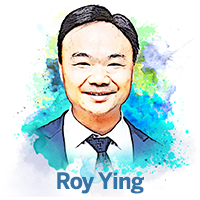Hong Kong is poised to take a significant step forward in embracing the halal economy, with the imminent launch of the first batch of halal-certified restaurants under the city’s Q-Mark certification program. This government-backed initiative is a long-overdue recognition of the enormous opportunities presented by the global halal market, a sector valued at $2 trillion and growing rapidly. Financial Secretary Paul Chan Mo-po has rightly emphasized the importance of making Hong Kong more welcoming to Muslim travelers, with plans to expand international promotional efforts to attract this demographic. In 2025, Hong Kong welcomed 54,000 visitors from the Middle East — a nearly 40 percent increase from the previous year — highlighting the rising interest in Muslim-friendly tourism.
 While this progress is commendable, Hong Kong must assess its current position within the global halal ecosystem. The city ranks third in the Mastercard-CrescentRating Global Muslim Travel Index (GMTI) for non-Muslim-majority destinations, a notable achievement. However, this ranking should be viewed in context: Being a leader among non-Islamic economies is like excelling in a niche category, which feels like a consolation prize or winning awards in a “mini-league”.
While this progress is commendable, Hong Kong must assess its current position within the global halal ecosystem. The city ranks third in the Mastercard-CrescentRating Global Muslim Travel Index (GMTI) for non-Muslim-majority destinations, a notable achievement. However, this ranking should be viewed in context: Being a leader among non-Islamic economies is like excelling in a niche category, which feels like a consolation prize or winning awards in a “mini-league”.
Hong Kong still lags behind regional leaders like Malaysia and Singapore, which have invested heavily in building robust halal infrastructure, including halal-certified restaurants, Muslim-friendly accommodation, and widely accessible prayer facilities. To truly compete on the global stage, Hong Kong must address these gaps and position itself as a serious contender in the broader halal economy.
The halal economy is more than a niche market; it is the foundation for attracting Muslim travelers, one of the fastest-growing segments in global tourism. According to the GMTI, the Muslim travel market is projected to reach $235 billion by 2030, up from $189 billion in 2024.
A key bottleneck is the complexity and cost of obtaining halal certification, which has deterred many businesses from entering the market. The SAR government’s support for halal certification under the Q-Mark program is, therefore, a welcome development. By lowering these barriers, Hong Kong can encourage more food and beverage operators to cater to the needs of both local Muslims and visitors
Muslim travelers are not only growing in numbers, but also expanding in spending power. Many are willing to pay a premium for Sharia-compliant services, such as halal dining, accommodation, facilities, and leisure activities. This demographic is also highly diverse, ranging from strictly observant Muslims who require halal-only options to those who simply prefer halal-friendly services. By catering to this spectrum of needs, Hong Kong can capture a larger share of this lucrative market.
The halal economy is not just about attracting tourists; it is also about serving Hong Kong’s thriving Muslim population of over 300,000. This community includes immigrants, foreign domestic workers, expatriates, and second-generation Muslims from various backgrounds, including Indonesians, Pakistanis, and Chinese Muslims. Despite its size and diversity, this community faces challenges in accessing halal food and services. Events like Ramadan bazaars, halal expos, and food fairs remain rare, underscoring the untapped demand for more consistent halal offerings.
A key bottleneck is the complexity and cost of obtaining halal certification, which has deterred many businesses from entering the market. The SAR government’s support for halal certification under the Q-Mark program is, therefore, a welcome development. By lowering these barriers, Hong Kong can encourage more food and beverage operators to cater to the needs of both local Muslims and visitors.
However, developing the infrastructure of a halal economy is only half the battle. To truly unlock the potential of the halal economy, Hong Kong must foster a culture of inclusivity. This effort must begin with public education. Schools, workplaces, and government institutions should take the lead in creating programs that promote awareness of Islamic culture, dietary rules, and religious practices.
While education lays the foundation for cultural understanding, businesses and public spaces have a role to play in translating inclusivity into everyday experiences. For example, multifunction rooms in offices can be designated as “reflection rooms” and used as prayer spaces when needed. Restaurants can expand their menus to include more halal options, while mall directories can highlight halal-certified services to create a more welcoming environment. These measures not only address the practical needs of Muslim individuals but also send a powerful message: Hong Kong values diversity and inclusion.
To make Hong Kong a leading destination for Muslim travelers, combining practical infrastructure improvements with cultural education is essential. But the true transformation will come from fostering mutual understanding. The liberty and live-and-let-live ethos of Hong Kong’s society allows Muslims to practice freely, but a deeper understanding of their needs would enable the city to do much more than accommodate: It would embrace and celebrate its Muslim population. By doing so, Hong Kong can set itself apart, not just as a hub for halal food or tourism but as a model for inclusivity that strengthens its global appeal and economic resilience. Everyone in Hong Kong stands to benefit from a halal economy that is backed not just by infrastructure but also by understanding, respect, and a shared commitment to diversity.
The author is a senior lecturer of marketing at the Hang Seng University of Hong Kong.
The views do not necessarily reflect those of China Daily.


